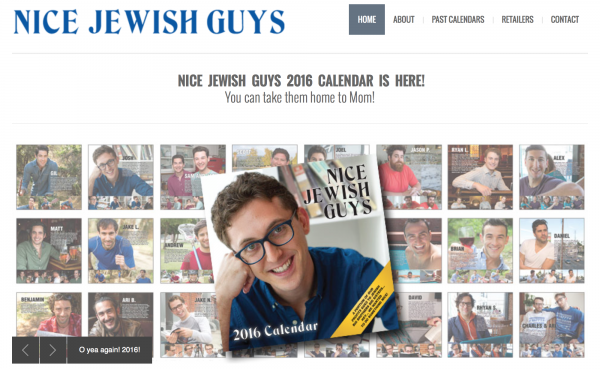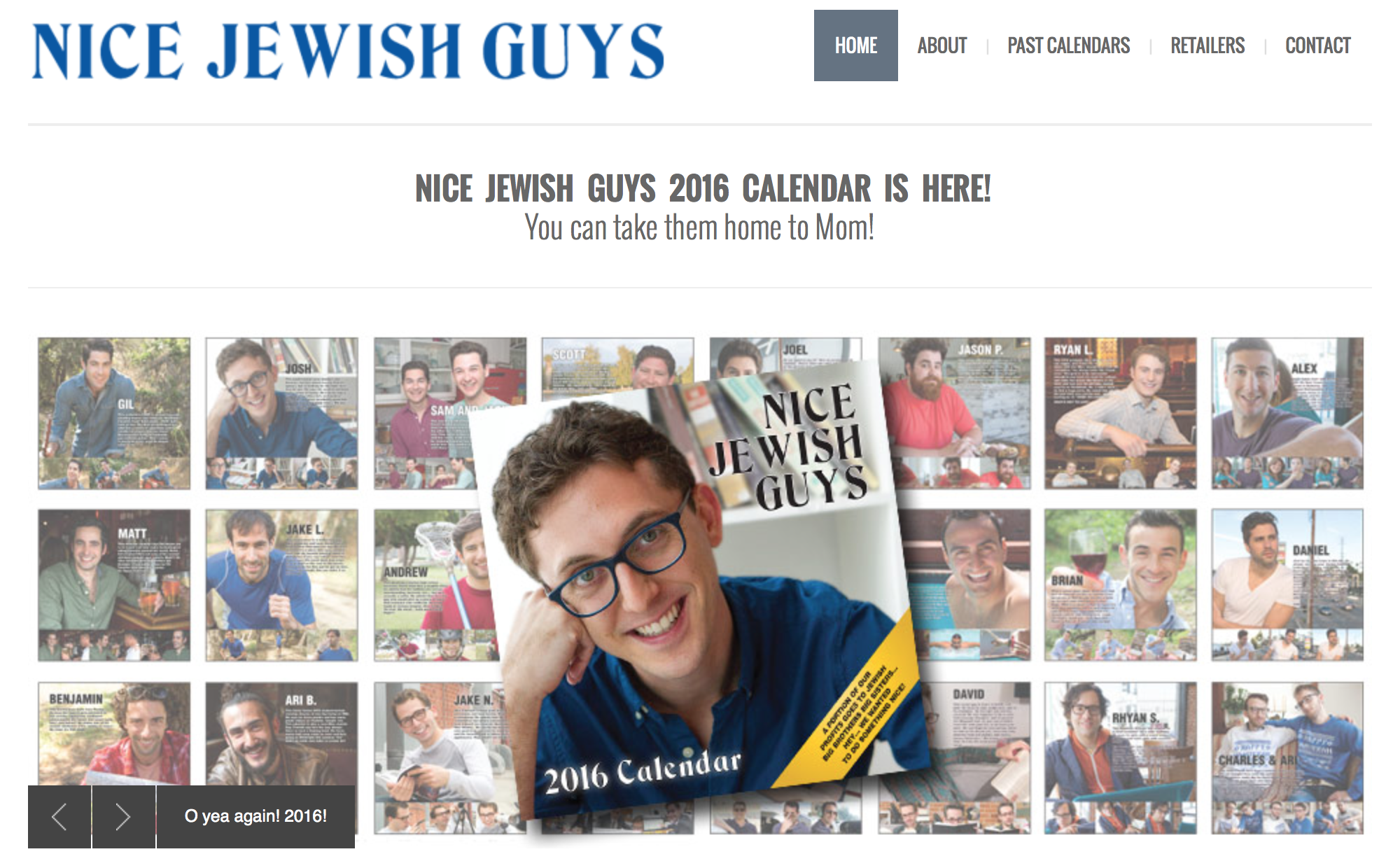
Which is why I was elated when Urban Outfitters released its 2016 Nice Jewish Guys calendar — and then I realized how conflicted I was. While I support the proliferation of the Nice Jewish Boy — and God only knows the world needs more of them — I also have many qualms with Urban Outfitters and some of their business ethics and clothing choices.
Part of why I’m so conflicted about the calendar is that I’m tired of seeing Jewish people presented as exotic and as just another classless calendar or article of clothing that Urban Outfitters sells for the sake of its own outrageousness — though much tamer, is the calendar really that different from the Kent State sweatshirt with fake blood stains, or any of their other merchandise which are questionable at best and utterly tasteless at worst? The Nice Jewish Guys calendar, just like everything Urban Outfitters seems to sell, is meant to draw attention through its absurdity and tokenizing of certain groups. The chain isn’t exactly known for appealing to sensible presentations of people and things (how could you ever call mittens with one panda bear mounting another, or socks with strippers on them, “sensible”?).
There’s no end to critiques of the calendar: It’s tokenizing. It portrays Jewish men as predominantly white-passing — none of them are portrayed as anything other than white and upper-middle-class. They all appear to have successful lives. It conflates the vastness of Jewish masculinity today into a group of twelve well-to-do, WASP-y Jews.
And yet, there’s so much that I like about the Nice Jewish Guys calendar. The calendar features a nice Jewish guy that is very much in line with what has historically typified Jewish masculinity: Most of them aren’t sporty or hypermasculine in the ways that we conceive of hypermasculinity today. Jake is bookish; Scott and Eric seem financially successful. Even though there are some athletes in the calendar, the main focus is not on brutish masculinity — rather, the calendar presents Jewish boys not as muscular but as, well, nice.
This is a masculinity which historically has been uniquely Jewish. Being bookish, soft-spoken, and clean-shaven are all traits that have been associated with Jewish men since the time of the Talmud. Indeed, physical brute force and strength is often seen as something distinctly un-Jewish. The conception of Jewish men as physically strong and buff is a historically recent phenomenon that correlates strongly with the rise of Zionism and the conception of the “New Jew” in the late 19th century.
That’s not to say that this new construction of masculinity is bad, but it’s also important to me that the presentations of Jewish men the world sees aren’t just physically strong. At the same time, the socioeconomic implications associated with the “soft” masculinity of white, upper-middle-class Americans erases some of the Jewish masculinities that have been created since then — including the masculinity created by Zionism and the masculinities created by Orthodox Jews.
The Nice Jewish Guys calendar emphasizes the exoticness of Jewish men and masculinity through their docility — a simple Google search yields no readily available results for a Nice Jewish Girls calendar. What does this say about the ways in which Jewish men are portrayed as exotic, in need of being celebrated? While I like the ways in which Jewish “soft” masculinity is celebrated, what does it say that our presentation might erase some of the conversations that we so desperately need?
I realize, of course, the absurdity of evaluating the cultural significance of something sold by Urban Outfitters, but there is significance to the way that others present us. Even if the calendar itself is produced by a Jewish man, the fact that it’s sold by Urban Outfitters — a company which in the past has sold a tapestry “eerily reminiscent” of the uniforms gay men were made to wear in Nazi concentration camps, among other criticized anti-Semitic items — brings with it the sense that this is done to further the exotification of Jewish men and masculinity, a problem even if the production of that masculinity is itself historically accurate and significant.
Given the need in the Jewish community to have a serious conversation about race, whiteness, and privilege, what does it say that others perceive Jews as predominantly white, docile, and upper-middle-class? When our construction of Jewish masculinity goes beyond just the “soft masculinity” it once was and intersects with race, we perpetuate Ashkenormativity, the assumption that the ideal, normal Jewish man is Ashkenaz and white or white-passing. By continuing to portray the ideal man as not just “nice” but also white and upper-middle-class, we continue to perpetuate the notion that all Jewish men fit into the same category.
Portraying Jewish masculinity as both white and upper-middle-class also allows many Asheknazi Jews to continue to avoid the conversation about race in which we so desperately need to engage, and continues to portray Jews at the top of the racial and socioeconomic hierarchy in wider American society. How does that reflect on the historical success of American Jews? Who does Urban Outfitters choose to portray, and who do they choose to ignore? What does this say about how we as Jews are presented, and what does that mean for us and the role we can play in the conversation that this country so desperately needs about racial and ethnic privilege?
Amram Altzman is a student at List College.

